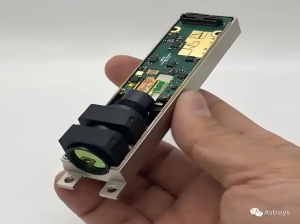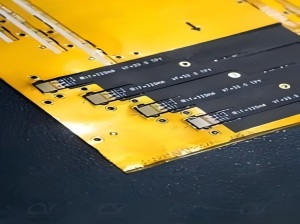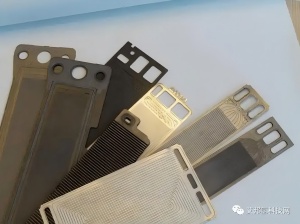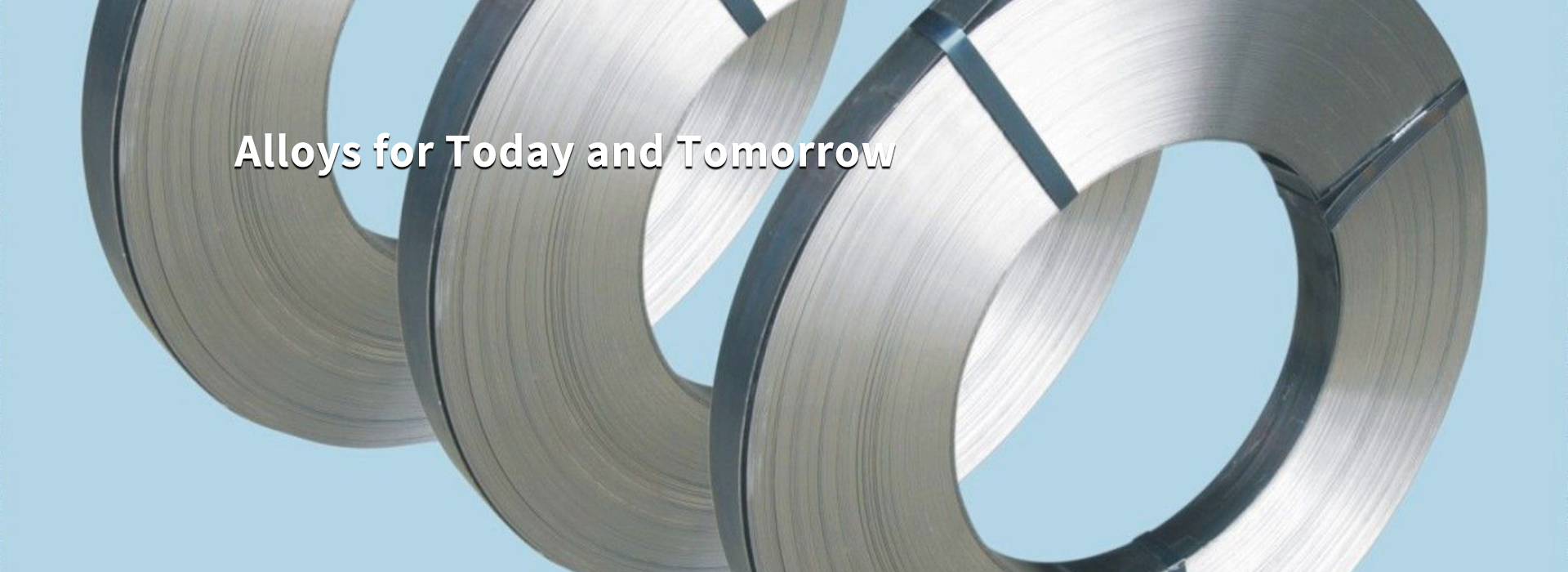INFORMATION
 Professional Blog
Professional Blog
 HOME > INFORMATION >
HOME > INFORMATION >
C70310 alloy: Redefining the strength and reliability revolution of automotive electronic connectors
2025-07-16
Introduction:
In the wave of automobile intelligence and electrification, the miniaturization and high-load operation of electronic devices pose extreme challenges to materials. C70310 copper-nickel-silicon alloy strip, a revolutionary material that has swept the industry with its ultra-high strength, fatigue resistance, and high conductivity, is becoming the first choice for cost-effective replacement of beryllium copper, driving the safe evolution of the next generation of automotive nervous systems.
Why does automotive electronics need C70310?
As the power of new energy vehicle electronic control systems soars, traditional connection materials face fatal bottlenecks:
Terminal contact failure due to vibration fatigue
High-temperature creep causes signal transmission fluctuations.
Beryllium copper costs more than 30% of BOM and has toxicity risks.
The age-hardening properties of C70310 alloy hit the pain point directly:
by precisely controlling the Ni-Si precipitation phase, it achieves a tensile strength of 750-980MPa (surpassing 70% copper alloys) while maintaining a conductivity of ≥45% IACS - this golden balance makes it an ideal carrier for key components such as relay reeds, fuse clips, and ECU pins.
C70310 in four decisive battles in automotive electronic systems
1. Smart connector: zero failure after 10,000 plug-ins
The Type-C charging interface spring is stamped from a 0.2mm ultra-thin C70310 strip. After 10,000 plug-in and pull-out tests, the contact resistance change is ≤3% and the strength attenuation rate is less than 5%, which perfectly matches the mechanical life requirements of the vehicle-mounted fast charging interface.
2. Sensor core guide: stable in the full temperature range of -40℃~150℃
The oxygen sensor signal terminal is made of C70310 age-strengthened material, which maintains σ0.2≥600MPa and conductivity fluctuation rate <2% under the drastic temperature difference in the engine compartment, ensuring accurate transmission of millivolt-level signals.
3. High-voltage relays: breaking through the traditional performance ceiling
Compared with traditional phosphor bronze, the relay reed made of C70310 is 25% thinner at the same current-carrying capacity, and its relaxation resistance is improved by 300%. It has successfully passed the 150A@85℃ 1000h endurance test, helping to safely implement the 800V platform.
4. Domain controller heat dissipation substrate: dual-optimal solution for electrical and thermal conductivity
As the heat dissipation substrate of the IGBT module, the thermal conductivity of C70310 alloy reaches 120W/(m·K), which is 5 times higher than that of stainless steel. Combined with the laser welding process, it realizes the integration of electrical, thermal, and mechanical functions.
Subverting the cost-effective king of beryllium copper
While peers are still compromising over the toxicity and price of beryllium copper, C70310 has provided a solution :
✅ The strength is 90% of beryllium copper, and the cost is reduced by 40%
✅ Green production process that does not require special protection
✅ No cracking when the bending radius R/t≤1 (ASTM E290) After
a global TOP3 connector manufacturer introduced C70310, the terminal cost of a single vehicle model dropped by 17 yuan, saving more than 20 million yuan annually.
Material performance matrix (C70310 vs. competitors)
The future is here: C70310 helps automotive electronics evolve.
With the breakthrough of 48V mild hybrid system penetration and the surge of autonomous driving sensors, the application of the C70310 alloy strip is extending from connectors to wider dimensions:
LiDAR waveguide cavity (high resistance characteristics enable signal fidelity)
Battery management system FPC reinforcement plate (0.1mm ultra-thin belt anti-deformation)
Hydrogen fuel cell bipolar plate coating substrate (corrosion-resistant conductive substrate)
Conclusion:
Every innovation in automotive electronics begins with a breakthrough in materials. C70310 copper-nickel-silicon alloy reconstructs metal genes with scientific proportions and uses quantifiable high strength, high elasticity, and high conductivity to create a "never-tired neural network" for smart cars. Choosing C70310 is not only choosing a material but also choosing a technology foundation that will lead the market in the next decade.
In the wave of automobile intelligence and electrification, the miniaturization and high-load operation of electronic devices pose extreme challenges to materials. C70310 copper-nickel-silicon alloy strip, a revolutionary material that has swept the industry with its ultra-high strength, fatigue resistance, and high conductivity, is becoming the first choice for cost-effective replacement of beryllium copper, driving the safe evolution of the next generation of automotive nervous systems.
Why does automotive electronics need C70310?
As the power of new energy vehicle electronic control systems soars, traditional connection materials face fatal bottlenecks:
Terminal contact failure due to vibration fatigue
High-temperature creep causes signal transmission fluctuations.
Beryllium copper costs more than 30% of BOM and has toxicity risks.
The age-hardening properties of C70310 alloy hit the pain point directly:
by precisely controlling the Ni-Si precipitation phase, it achieves a tensile strength of 750-980MPa (surpassing 70% copper alloys) while maintaining a conductivity of ≥45% IACS - this golden balance makes it an ideal carrier for key components such as relay reeds, fuse clips, and ECU pins.
 |
 |
 |
C70310 in four decisive battles in automotive electronic systems
1. Smart connector: zero failure after 10,000 plug-ins
The Type-C charging interface spring is stamped from a 0.2mm ultra-thin C70310 strip. After 10,000 plug-in and pull-out tests, the contact resistance change is ≤3% and the strength attenuation rate is less than 5%, which perfectly matches the mechanical life requirements of the vehicle-mounted fast charging interface.
2. Sensor core guide: stable in the full temperature range of -40℃~150℃
The oxygen sensor signal terminal is made of C70310 age-strengthened material, which maintains σ0.2≥600MPa and conductivity fluctuation rate <2% under the drastic temperature difference in the engine compartment, ensuring accurate transmission of millivolt-level signals.
3. High-voltage relays: breaking through the traditional performance ceiling
Compared with traditional phosphor bronze, the relay reed made of C70310 is 25% thinner at the same current-carrying capacity, and its relaxation resistance is improved by 300%. It has successfully passed the 150A@85℃ 1000h endurance test, helping to safely implement the 800V platform.
4. Domain controller heat dissipation substrate: dual-optimal solution for electrical and thermal conductivity
As the heat dissipation substrate of the IGBT module, the thermal conductivity of C70310 alloy reaches 120W/(m·K), which is 5 times higher than that of stainless steel. Combined with the laser welding process, it realizes the integration of electrical, thermal, and mechanical functions.
Subverting the cost-effective king of beryllium copper
While peers are still compromising over the toxicity and price of beryllium copper, C70310 has provided a solution :
✅ The strength is 90% of beryllium copper, and the cost is reduced by 40%
✅ Green production process that does not require special protection
✅ No cracking when the bending radius R/t≤1 (ASTM E290) After
a global TOP3 connector manufacturer introduced C70310, the terminal cost of a single vehicle model dropped by 17 yuan, saving more than 20 million yuan annually.
Material performance matrix (C70310 vs. competitors)
|
characteristic |
C70310 |
Beryllium CopperC17200 |
Phosphor BronzeC5191 |
|
Tensile strength(MPa) |
750-980 |
1000-1400 |
550-750 |
|
Electrical conductivity (%IACS) |
45-50 |
18-22 |
15-25 |
|
Bending fatigue life |
≥10⁷times |
≥10⁷times |
≤10⁶times |
|
Stress relaxation resistance (150℃) |
<15% |
<10% |
>30% |
|
Material Cost Index |
1.0 |
3.2 |
0.9 |
The future is here: C70310 helps automotive electronics evolve.
With the breakthrough of 48V mild hybrid system penetration and the surge of autonomous driving sensors, the application of the C70310 alloy strip is extending from connectors to wider dimensions:
LiDAR waveguide cavity (high resistance characteristics enable signal fidelity)
Battery management system FPC reinforcement plate (0.1mm ultra-thin belt anti-deformation)
Hydrogen fuel cell bipolar plate coating substrate (corrosion-resistant conductive substrate)
Conclusion:
Every innovation in automotive electronics begins with a breakthrough in materials. C70310 copper-nickel-silicon alloy reconstructs metal genes with scientific proportions and uses quantifiable high strength, high elasticity, and high conductivity to create a "never-tired neural network" for smart cars. Choosing C70310 is not only choosing a material but also choosing a technology foundation that will lead the market in the next decade.





